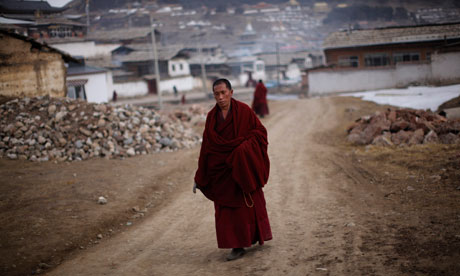By Greg Donaldson
Impunity Watch Reporter, Asia
YANGON, Myanmar – During President Thein Sein’s inauguration speech, the new president promised “sweeping democratic reform, and vowed to respect the role of the media.” One year later all signs indicate that President Sein is keeping his promise. Last month an article was published in the Yangon weekly Health Journal which described the poor living conditions prisoners faced in local jails.

The article explained that prison authorities attempted to cure an outbreak of scabies by having prisoners take their clothes off as prison employees wiped the naked inmates with medicine-laden brooms. Not only did the article raise alarming ethical questions about the treatment of prisoners but also displayed the poverty of both the nation’s prisons and healthcare system.
Zaw Thet, who wrote the article, was a political prisoner until last January. He explained “in the past it would’ve been a very dangerous thing to publish… it wasn’t allowed.” In the past journalists had been threatened, jailed, blacklisted, and beaten for writing articles the government did not want published.
While the government continues to censor reporting about “sensitive subjects” such as politics, censorship has ended on many subjects. Journalists are free to write on topics such as health, entertainment, fashion, and sports. Many reporters are interested in testing the recently gained limited freedom to find out what other topics the government will allow them to write about.
Thiha Saw, chief editor of a news weekly called Open News, said he’s now able to write freely about fires, murders, and natural disaster. He explained at various times in the past each had been prohibited.
Media groups who have been exiled in the past are interested at the prospect of returning to Myanmar. However, these groups hesitant to ensure that the current regime will not change its views on censorship in the future.
Aung Zaw, founder of the Irrawaddy news website based in Thailand, escaped Myanmar in 1988 after a popular uprising was “brutally crushed” by the previous government. After making his first trip back to Myanmar Zaw explained “it is our dream to publish a publication or online magazine inside Burma.”
The government has further promised to end censorship altogether once the parliament passes a new media law later this year. The legislation, which is currently being drafted, would allow Myanmar’s independent press to publish daily for the first time in decades.
For more information, please see:
Taipei Times – Myanmar’s Exiled Media Lured Back Home by Reform – 28 February 2012
Washington Post – Myanmar Eases Restrictions on media, Vows Full End to Censorship as Reporters Test New Limits – 28 February 2012


